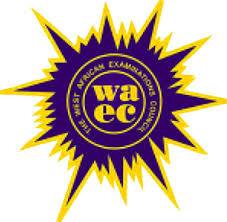Who is a Desktop Support Engineer?
A Desktop Support Engineer is a qualified IT professional well-versed in handling small-scale as well as advanced IT… The post Who is a Desktop Support Engineer? appeared first on Leverage Edu.


A Desktop Support Engineer is a qualified IT professional well-versed in handling small-scale as well as advanced IT concerns and issues. Varied organisations ranging from boutique companies to large-scale enterprises require such individuals to ensure the smooth functioning of their day-to-day operations. They work as part of the technology or IT helpdesk or service departments typically reporting to the Systems Engineer or Senior Engineer. If you have gained expert knowledge in the vast arena of Information Technology, you might be the right fit for this career. Here is a detailed blog on the roles and responsibilities of a Desktop Support Engineer as well as the qualifications you need to fulfil in order to apply for this job profile.
Primary Responsibilities of a Desktop Support Engineer
When it comes to the list of job responsibilities of a Desktop Support Engineer, it involves almost everything from periodic maintenance to handling individual systems and network queries. Many desktop support professionals also work rigorous day and night shifts, depending on the needs of the company. Further, some jobs may also include the resolution of customer support queries and issues related to the product. Below we have elaborated on some of the key responsibilities of a Desktop Support Engineer:
Technical Troubleshooting
The quintessential feature of a Desktop Support Engineer’s job profile is to conduct troubleshooting operations on devices, networks or any other supporting system. Common issues include device malfunction, connectivity problems, and data issues, amongst others.
Installing New Software & Testing and Updation of Pre-existing Software
Computer programs and applications need to be regularly updated to ensure the smooth running of their operating systems. This not only involves the periodic renewal of computer applications, network mechanisms and software but also of upgradation of the related hardware equipment.
Oversee Computer Networks
Networks are indispensable to the working of any organisation, especially a software-based company. Network systems, be they interconnected or online, are prone to issues which must be solved immediately in order to minimise any delay in daily operations. Common network-related issues including bad connectivity, device replacement and overloading are majorly tackled by a Desktop Support Engineer.
Client Servicing
In addition to the above responsibilities, some desktop support jobs also require individuals to converse, understand and fulfil client-based requests. Mainly software-related companies receive a huge number of client service requests including device malfunctioning, part replacement, accessory issues and much more.
Regulation Policy Adherence
Desktop Support Engineers are required to adhere to the regulations and policies of the company in terms of client servicing and devices amongst others. In addition to company policies, higher-level jobs may also require you to follow governmental and international regulations related to cybersecurity, privacy and hacking.
Other Responsibilities
Apart from the above primary responsibilities, a desktop support engineer may also be required to fulfil a few additional responsibilities such as,
- Testing Alternative Pathways to Resolve an Issue
- Record Technical issues
- Resolve User tickets
- Train End users/Consumers
- Device Maintenance
- Handle Daily Technical Queries
Requirements for Working in Desktop Support Engineering
Certain employment qualifications must be met in order to pursue a career as a desktop support engineer. Mentioned below are the few of them:
- A bachelor’s degree in computer science, information technology, or a similar discipline is often required for desktop support engineers. As you go along this career path, this degree will equip you with a firm foundation of knowledge.
- Hiring managers prefer applicants who have demonstrated work experience in this field or as a desktop support technician. Consider pursuing an entry-level role on an IT team before applying for a desktop support engineer post.
- Hiring managers prefer applicants who have demonstrated work experience in this field or as a desktop support technician. Consider pursuing an entry-level role on an IT team before applying for a desktop support engineer post.
- On-the-job training is typical for desktop support engineers. This training allows them to gain a better understanding of their new role before instructing others. You can perform your own training prior to employment by taking various courses or pursuing necessary certifications.
- Not necessarily required, but you can boost your chances of employment as a desktop support engineer by pursuing certifications as well. The following are some certifications to consider:
- Microsoft Certified Professional
- Microsoft Certified Solutions Expert
- CompTIA A+ Certification
- HDI – Desktop Support Technician Certification
- Information Technology Infrastructure Library
Also Read:
Similar Jobs
The IT and Computer industry offers a plethora of career opportunities to those who are knowledgeable about computing technologies and data analytics. Here is a list of job profiles that are quite similar to that of a Desktop Support Engineer:
- Network Engineer
- Application Support Specialist
- IT Engineer
- Technology Support Specialist
- Help Desk Operator
- Maintenance Engineer
- Technician
- Software Engineer
Qualifications Required to Become a Desktop Support Engineer
A high degree of technical, computer and software knowledge is essential to apply for the profile of Desktop Support Engineer. Further, different companies and job levels require an associated background and some may even require a few years of industry experience. Further, to pursue this career profile, you need to be knowledgeable about the following fields:
- Business Systems Engineering
- Computer Software Development
- Software Engineering
- Computer Science
- Computer Networking
- Business Information Technology
- Internet Engineering
- Computer Application
Also Read:
- Diploma in Software Engineering
- Post Graduate Diploma in Computer Application
- Diploma in Computer Science
- Diploma in Computer Application
Skills
Below mentioned are a few essential skills that employers look for in potential candidates applying for the job of Desktop Support Engineer:
- Advanced Technical knowhow of IT and computer science
- Programming Knowledge (desired)
- Network Security knowledge
- Working in a time-bound environment
- Ability to prioritise and balance conflicting demands
- Strong communication skills
- Problem Solving Skills
- Cloud Platform Familiarity
- Operating Systems Knowledge
- Other Supporting Devices Knowledge
- Advanced Multitasking Skills
Also Read: Computer Courses List
Desktop Engineer Career Opportunities
Larger organisations with a diverse technical infrastructure may have several teams to handle different aspects of their operation. With expertise, it is feasible to advance to a specialist area dealing with more complex technological situations.
Another option is to assume the role of team or department leader. This can include supervising the work of a group of support personnel, arranging daily maintenance schedules, and lastly managing the organization’s overall operational support.
Freelancing is another excellent option for advancing your profession. The employment may entail offering on-demand services to large corporations in the hardware, software, or applications fields. Contracts are occasionally given as short-term or long-term depending on the duration of the project.
Alternatively, you could move on to other positions in IT, such as systems developer or network engineer.
Salary
The national average income for desktop support technicians is $46,405 (INR 38L) per year. Keep in mind that desktop support engineers are most likely paid more. Your income as a desktop support engineer is also affected by your geographic region, employer, and amount of skill or experience.
FAQs
Analytical thinking.
Attention to detail.
Customer service best practices.
Knowledge of computers and other hardware devices.
Knowledge of network troubleshooting, Ethernet and IP configuration.
Knowledge of software distribution and patch management.
Desktop engineers diagnose and repair hardware and software problems, as well as install and maintain hardware and computer peripherals. They are in charge of installing and upgrading operating systems and software, as well as diagnosing network connectivity issues.
Desktop support engineers are IT support specialists that assist clients with hardware and software issues.
Computer systems and networks attract scores of young computer science graduates who are looking for lucrative opportunities as well as rapid career advancements. If you are planning to enter this field but are unsure whether it suits you, our Leverage Edu experts are here to help you in sorting out your interests and aspirations to find the ideal career profile in the vast domain of Information Technology.
The post Who is a Desktop Support Engineer? appeared first on Leverage Edu.








![National Examinations Council (NECO) June/July [SSCE] Internal Timetable For 2022/2023 Examination Exercise | Download NECO Timetable PDF File For Free Here](https://micplustech.com/wp-content/uploads/2020/02/images-33.jpeg)

